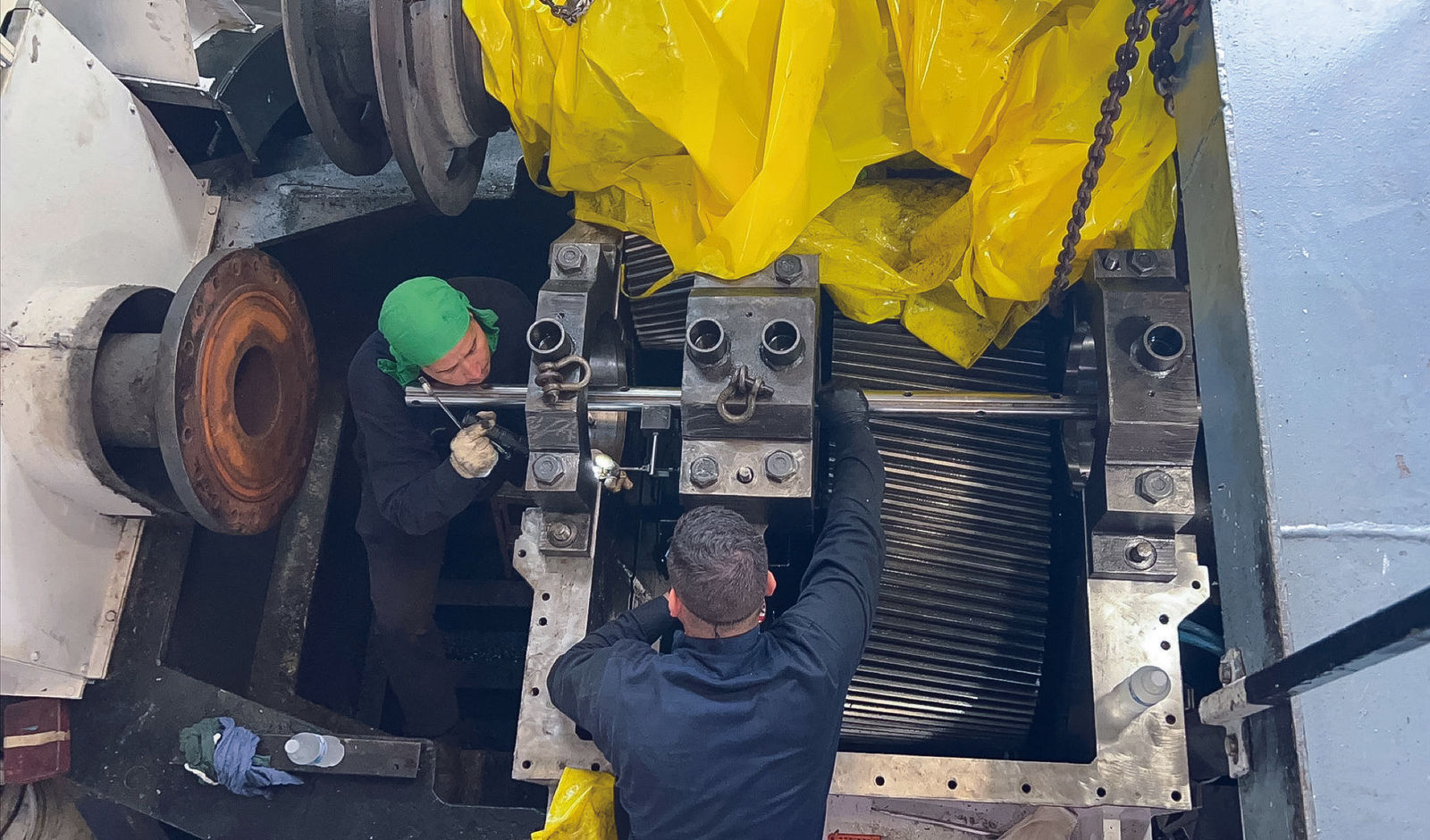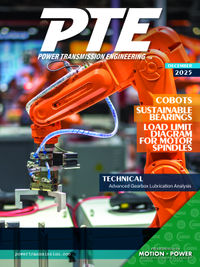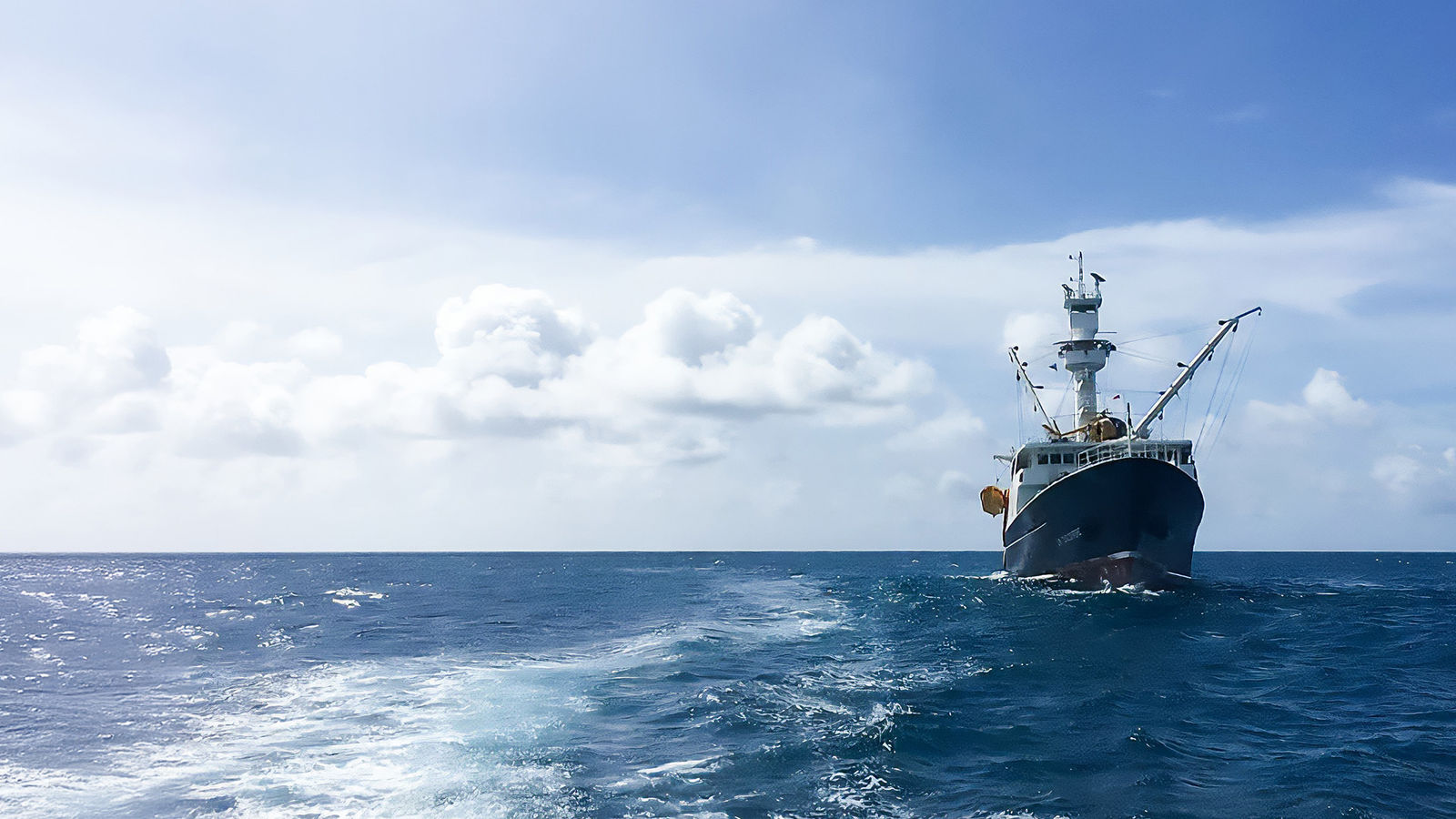Keeping the Boats Afloat
Marine Industrial Gears (MIG) is always on call, ready to repair transmissions on everything from river boats up the Mississippi, to oil tankers on the high seas.
Cliff Hill saw an opportunity to do it better. With a career that began in 1979 servicing Lufkin and Falk gearboxes for marine applications, he’d had his share of frustrating parts shortages, technology issues, difficulties in getting quotes and ever-increasing pricing. There had to be a better way. So, in 2003, Cliff Hill founded Marine Industrial Gears (MIG). 11 years later, his son Clifton Hill joined the company. Today, Marine Industrial Gears is indeed doing it better, from its workshop on the Mississippi River just west of New Orleans, in Harvey, Louisiana, and a second repair facility strategically located in Paducah, Kentucky, a waterway hub where the Mississippi and Missouri rivers converge. From these two facilities MIG can cover much of the eastern United States, the Gulf of America/Mexico and, when the need arises, go anywhere in the world where a surface ship needs repair. This includes gearboxes of every make and model—Falk, Lufkin, Reintjes, Western, Twin Disc Gears and Haley—many of which have had to endure the harshest conditions that exist out on the open seas.
All Hands On Deck!
All of these projects have at least one thing in common: marine gearboxes leave no room for failure. Taking a ship out of service for an extended period can cost the owner a fortune, let alone the enormous price tag associated with replacing the gearbox. Repairing and returning a gearbox to reliable service must be done quickly and efficiently. It’s what MIG excels at. With no time to waste, MIG takes an all-hands-on-deck approach to repair. Most machining can be done in-house, rather than waste precious time outsourcing. This includes line boring of reduction gears, crankshafts, struts, stern tubes, and rudder stocks; drilling and reaming of engine and gearbox foundations after alignment; even machining and fabricating of foundation bolts, bearing sleeves, and shafts in the required high quality. And now, with the recent acquisition of a Gleason P1600/2000G Profile Grinding Machine, add finish grinding to the MIG toolkit.
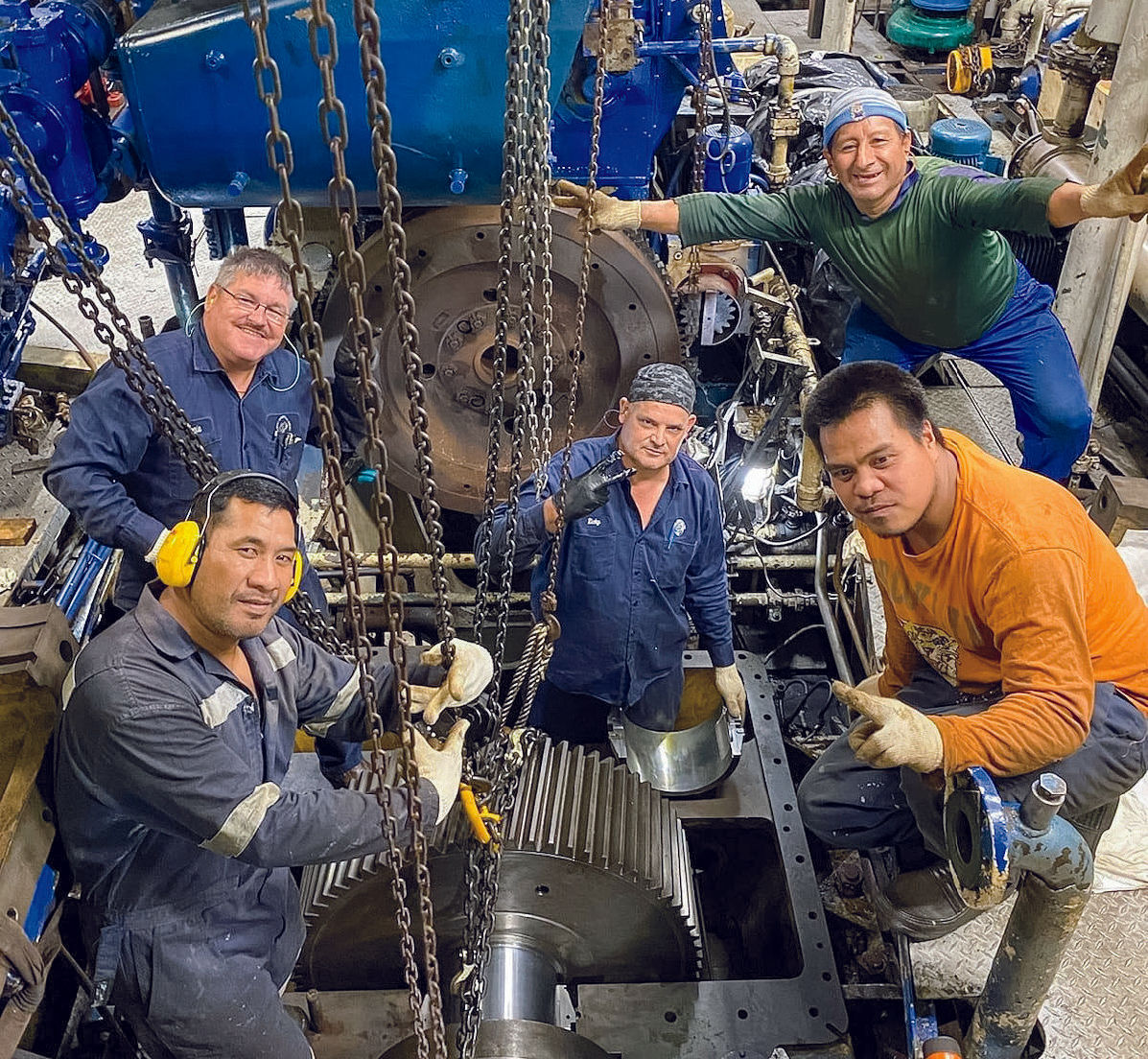
 Marine Industrial Gears Services at a GlanceGlobal service to the marine and industrial transmission industry, with facilities in New Orleans, LA, and Paducah, KY. 24/7 Field Service. Line boring of reduction gears, crank shafts, engines, struts, stern tubes, and rudder stocks. Alignment, drilling and reaming of engine and gearbox foundations. Full-service machine shop with turning and milling capabilities. Gear profile grinding up to AGMA class A. Rework and manufacturing of foundation bolts, bearing sleeves, seal components, thrust bearing spacers and shafts. Stock of clutches, bearing assemblies, rotating seals, airshafts, bearings, etc. |
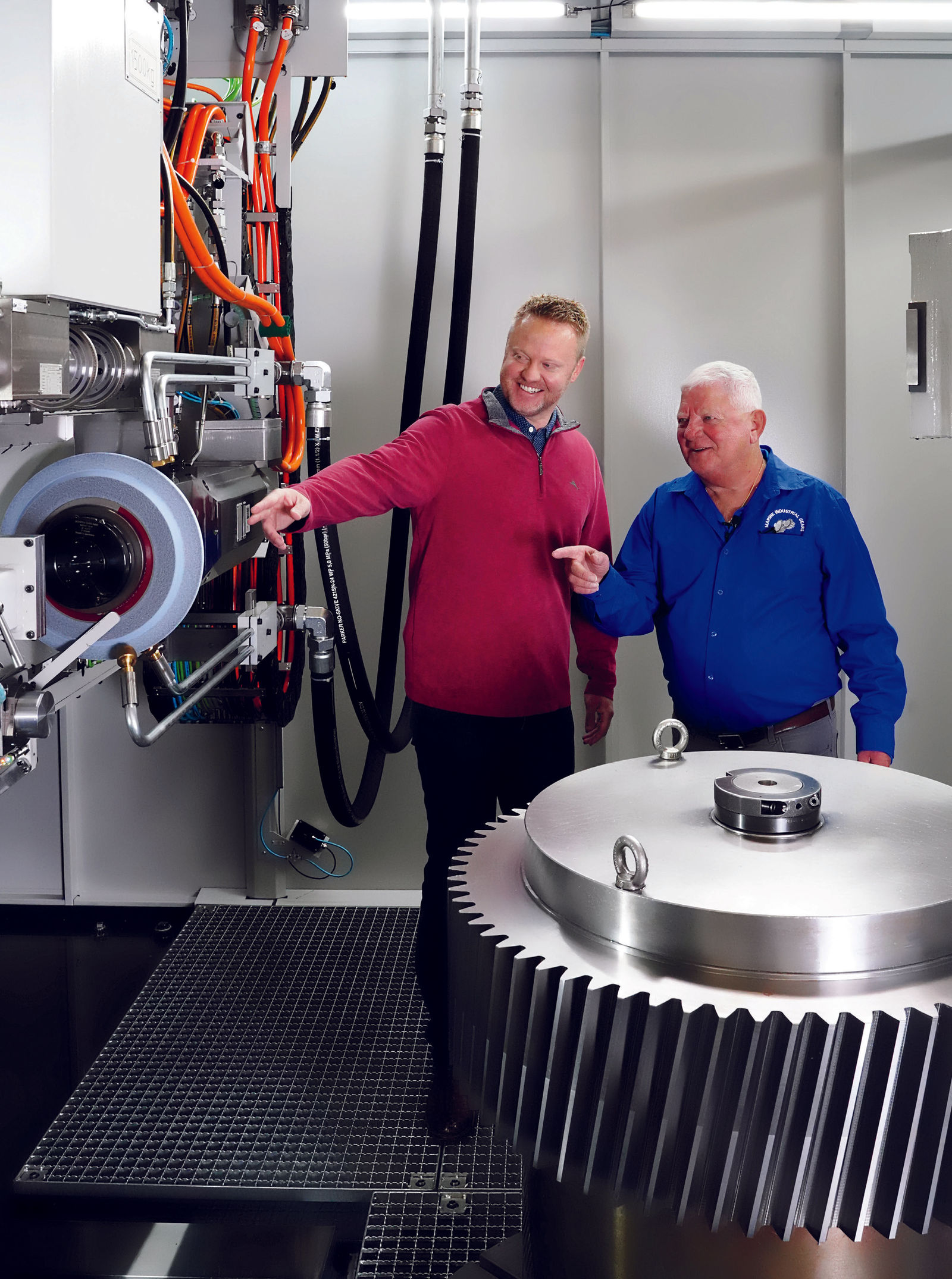
Geared Up for Grinding
While MIG’s focus up until recently had been the servicing of marine transmissions, including alignments, line boring, milling and other jobs, Cliff Hill saw an opportunity to gain control of inventory, shorten delivery and serve his customers better by adding medium and large gear production to MIG’s repertoire. Consequently, MIG sought a machine to cover their typical gear service range: gears 48–50 in. (1,210–1,270 mm) in diameter, 24 in. (600 mm) face widths, herringbone-type shafts with double helical gears and other industrial gears of similar size and more.
While Cliff was researching grinding options, a customer and friend recommended Gleason. “He said, ‘Go to Gleason and ask for their 2-meter grinder’,” Cliff recalls. “So we narrowed our search down to the ideal machine: a Gleason P1600/2000G Profile Grinding Machine. This machine fits ideally the scope of the workload.” Indeed, MIG’s new Gleason Gear Grinder features cutting-edge technology to rough- and finish-grind any cylindrical external gear up to 79 in. (2,000 mm), to the highest AGMA quality class. The P1600/2000G enables MIG to grind all main transmission elements such as bull gears, pinions or idler gears for all makes and models of marine and industrial gearboxes. Now, gears with minor surface damage can be kiss-ground (light surface grind) in-house with lightning-fast turnaround on all gear elements to minimize downtime.
